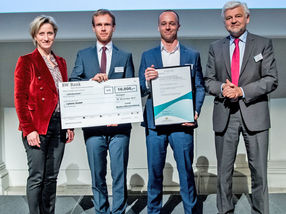EBE and EuropaBio hail EU Orphan Medicinal Products Regulation a success
EBE and EuropaBio’s Joint rare diseases and Orphan Medicinal Products Task Force released an assessment of the EU’s Orphan Medicinal Products (OMP) Regulation evaluating the extent to which this legislation has impacted research into rare diseases and the availability of new medicines to treat rare diseases over the last ten years.
The OMP regulation EC 141/2000, which came into force in April 2000, provided incentives for research, development and bringing to the market of medicines intended for the diagnosis, prevention or treatment of rare life-threatening or seriously debilitating conditions. Although individual rare diseases, which include certain cancers, metabolic diseases, diseases of the nervous system and musculoskeletal disorders, affect fewer than 5 in every 10,000 people, in combination, rare diseases may directly or indirectly affect an estimated 30 million people in Europe.
Since coming into force the OMP legislation has increased the availability of medicines to treat patients with rare diseases from just 8 in 2000 to 69 today. It has provided support to companies investing in treatments for rare diseases, but importantly it has also helped to establish new companies in Europe focusing on researching new treatments for rare diseases.
The assessment, commissioned from the Office of Health Economics (OHE) Consulting, reveals that between 2000 and 2004, R&D investment in rare diseases in Europe increased by more than half and more than doubled between 2004 and 2008. Over the entire 2000-2008 period, the total growth in investment amounted to more than 200%. R&D focused on finding new treatments for patients with rare diseases represents an increasingly significant proportion of the total investment in R&D in the biopharmaceutical industry.
Commenting on the analysis, Dr Erik Tambuyzer, Chair of the EBE-EuropaBio Joint Task Force said: “This is a clear example of how the right legislation can drive forward European healthcare innovation delivering numerous benefits to individuals, to society and at the same time to the development of a sustainable and competitive economy. And while only a small percentage of rare diseases currently already have a treatment, there is much room for more industry involvement in the field to develop more rare disease treatments.”
Other news from the department politics & laws

Get the life science industry in your inbox
By submitting this form you agree that LUMITOS AG will send you the newsletter(s) selected above by email. Your data will not be passed on to third parties. Your data will be stored and processed in accordance with our data protection regulations. LUMITOS may contact you by email for the purpose of advertising or market and opinion surveys. You can revoke your consent at any time without giving reasons to LUMITOS AG, Ernst-Augustin-Str. 2, 12489 Berlin, Germany or by e-mail at revoke@lumitos.com with effect for the future. In addition, each email contains a link to unsubscribe from the corresponding newsletter.

















































